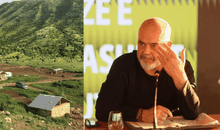
 Flash News
Flash News
Ceno Klosi with over 800 stolen votes, Balluku finds the reason is the tiredness of the counters
"Fast & Furious" in the former Block, police chase an Audi Q8, 4 cars collide
Car hits two tourists on a motorcycle in Fushe Arrëz, one of them dies
Serious accident in Thumanë, one dead, 3 injured
Durrës Court suspends the director of Pre-University Education from duty
Political elections in Kosovo - a lesson for the mother country
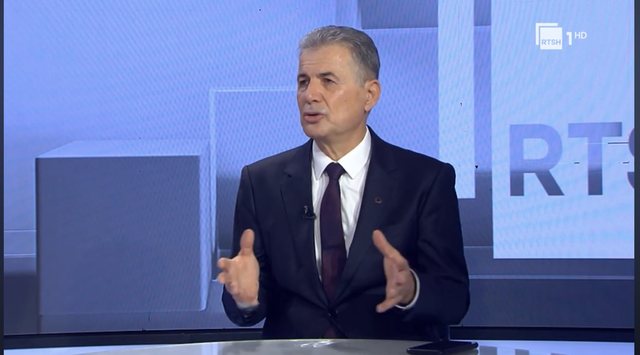
By Ekrem Spahiu
There were many suspicions, even pushbacks, from inside and outside Kosovo, to relativize and orient its recent parliamentary elections. And yet, the voters of Kosovo themselves showed their political maturity, deciding, with their free vote, that the future government be more collegial to continue working for the benefit of Kosovo, cutting off the path to governance by a single political party.
Kosovo, the second poorest country in Europe according to estimates by credible European institutions, demonstrated rich values of European standards by holding free and fair elections. The elections in Kosovo were a model for a well-organized electoral process, a classic electoral campaign where parties and candidates presented their alternatives, a fast and uncontested voting and counting process.
The European Union has immediately welcomed the fact that the parliamentary elections in Kosovo were held in a peaceful atmosphere, in which citizens were able to freely express their will. A delegation from the Committee on Politics and Democracy of the Parliamentary Assembly of the Council of Europe, immediately after the elections, stated that the election process in Kosovo was inclusive and peaceful and that the members of the local election commissions should be commended for their collegial and respectful cooperation, overcoming political differences.
In Albania, as in Kosovo, the list of candidates is drawn up by the party or the president, but in Kosovo, voters elect members of parliament (MPs) directly through secret ballot based on open lists. This means that in Kosovo it is the citizen who chooses the MP and the ranking is made by the voter, while in Albania the appetites, preferences and bargaining of party politicians still decide.
In Kosovo, the diaspora vote is simply part of the normality of the electoral process. On the contrary, in Albania, it took almost a struggle to achieve the inclusion of the diaspora in the voting process, and this is only starting with the elections that we expect to take place on May 11, 2025! Not to mention that, even though it was possible to make the diaspora part of the electoral process, the obstacles to prevent it have not ended.
In Kosovo, immediately after the elections, within 24 hours the counting is completed and the loser admits defeat and takes responsibility for the loss. Meanwhile, in Albania, before the electoral process is even fully over, accusations of theft begin - a separate epithet used only in Albania, an expression even more vulgar than vote-stealing or manipulation of the process itself.
Thus, Kosovo, with only a few years of statehood, managed to do what Albania, with over 100 years of statehood, has not managed to do: hold free, fair, honest elections accepted by the competing entities.
Here, then, is a model for a nationwide culture. By appreciating and implementing such models from one another, national unity also becomes a more tangible subject for achieving what Albania is constitutionally obligated to do and Kosovo sees as a legitimate eternal dream.
In this context, the political elections in Kosovo and the messages they gave us were and are part of the attention and assessment of the Movement for National Development, for which the national issue is one of the top priorities.
Latest news





Lufta në Gaza/ Pse Netanyahu do vetëm një armëpushim 60-ditor, jo të përhershëm?
2025-07-02 21:56:08
US suspends some military aid to Ukraine
2025-07-02 21:40:55



Methadone shortage, users return to heroin: We steal to buy it
2025-07-02 20:57:35
Government enters oil market, Rama: New price for consumers
2025-07-02 20:43:30
WHO calls for 50% price hike for tobacco, alcohol and sugary drinks
2025-07-02 20:41:53



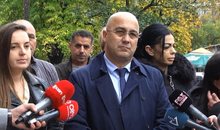


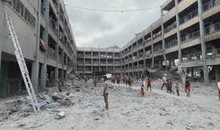
Israel agrees to 60-day ceasefire in Gaza, but many unanswered questions remain
2025-07-02 18:35:27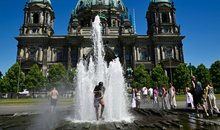
The weather in Germany is going "crazy", temperatures reach 40°C
2025-07-02 18:22:21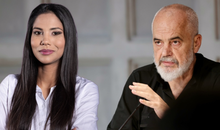

"Fast & Furious" in the former Block, police chase an Audi Q8, 4 cars collide
2025-07-02 17:59:25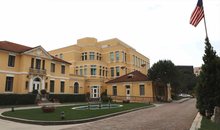
"Birth on a tourist visa? US Embassy warns Albanians: This is prohibited!"
2025-07-02 17:48:16
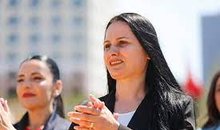
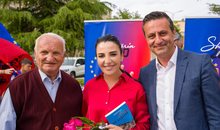
BIRN: Fier recount reveals vote trafficking within open political party lists
2025-07-02 16:57:19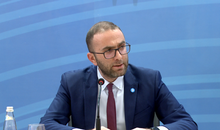

CEO and former director of 'Bankers Petroleum' arrested in Fier
2025-07-02 16:40:42
Car hits two tourists on a motorcycle in Fushe Arrëz, one of them dies
2025-07-02 16:33:23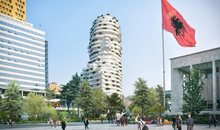



Fire at the Elbasan Incinerator Landfill, Prosecution Launches Investigations
2025-07-02 15:34:54
What you need to know if you travel to a country with active volcanoes
2025-07-02 15:33:03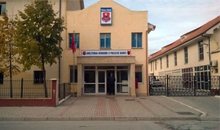

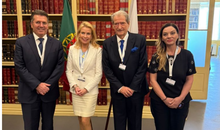

EU proposes 90% reduction in greenhouse gases by 2040
2025-07-02 14:50:23
Europe is burning from the heat / Italy and France are on maximum alert
2025-07-02 14:36:52
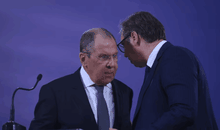
Moscow's contradictory statements: Is the friendship with Vučić breaking down?
2025-07-02 14:21:05
'I lost my battle': Sea warming is killing fishing in Albania
2025-07-02 14:08:35
Sekretet kimike që ndihmojnë në mbajtjen e mjaltit të freskët për kaq gjatë
2025-07-02 14:01:26
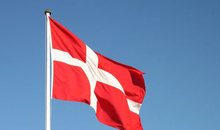
Denmark makes historic decision to make military service mandatory for women
2025-07-02 13:44:33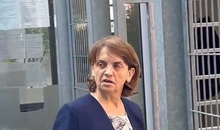
The appeal of the GJKKO leaves former judge Pajtime Fetahu in prison
2025-07-02 13:30:20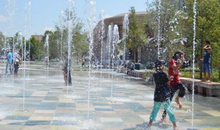
Productivity losses could reduce GDP by 1.3% as a result of extreme heat
2025-07-02 13:21:04
He abused his minor daughter, Zamir Meta is left in prison
2025-07-02 13:04:04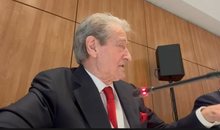

Waste burning in Elbasan, Alizoti: They are poisoning people and stealing money
2025-07-02 12:48:39
Civil disobedience continues in Serbia, dozens of people detained
2025-07-02 12:40:32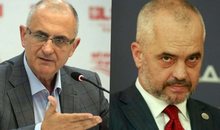
Rama's government was born under the sign of garbage and will end like this
2025-07-02 12:28:09
Water prices increase in the municipalities of the Elbasan region
2025-07-02 12:13:38
Civil disobedience continues in Serbia, what is happening in Belgrade?
2025-07-02 12:07:44
Serious accident in Thumanë, one dead, 3 injured
2025-07-02 11:54:42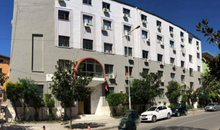
Durrës Court suspends the director of Pre-University Education from duty
2025-07-02 11:49:27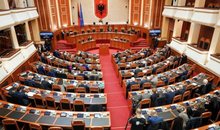
Plenary session on Thursday, what is expected to be discussed
2025-07-02 11:36:43
Europe is burning from heat waves/ What is the 'thermal dome' phenomenon?
2025-07-02 11:26:25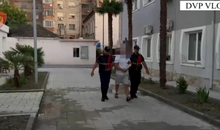
Wanted by Italy for murder, 45-year-old arrested in Vlora
2025-07-02 11:19:31
Fire situation, 28 fires reported in 24 hours, 2 still active
2025-07-02 11:13:20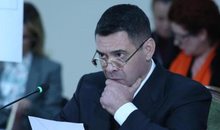
"Buka" file, preliminary hearing for Ahmetaj postponed to July 17
2025-07-02 11:03:30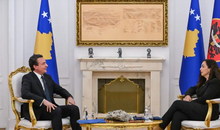
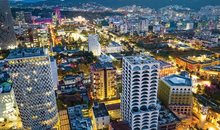

Baçi: Belinda Balluku and Ceno Klosi, the most dangerous "gangs" in Fier
2025-07-02 10:32:09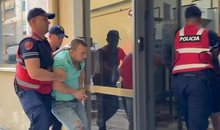
Zamir Meta, suspected of sexually abusing his daughter, arrives in court
2025-07-02 10:21:33

Trump: Israel has agreed to a 60-day ceasefire in Gaza
2025-07-02 10:01:55
Fire continues at Elbasan landfill
2025-07-02 09:51:13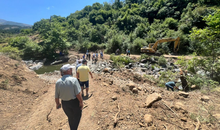

Dates to note during July, important events will occur
2025-07-02 09:31:45
The hearing for Jorgo Goro's claim is postponed
2025-07-02 09:24:19



Foreign exchange, the rate at which foreign currencies are sold and bought
2025-07-02 08:42:31

52% of pensioners did not receive full pension in 2024
2025-07-02 08:27:18
Horoscope, what do the stars have in store for you today?
2025-07-02 08:13:36
Hot weather, Wednesday brings high temperatures
2025-07-02 07:59:16
Morning Post/ In 2 lines: What mattered yesterday in Albania
2025-07-02 07:46:15
Heatwave sweeps across Europe, Spain and England record hottest June ever
2025-07-01 22:57:41






Golem and Qerret without water at the peak of the tourist season
2025-07-01 21:09:32

Euractiv: Italy-Albania migrant deal faces biggest legal challenge yet
2025-07-01 20:53:38
BIRN: Brataj and Fevziu victims of a 'deepfake' on Facebook
2025-07-01 20:44:00

Vlora by-pass, work delays and cost increases
2025-07-01 20:24:29



Milan are expected to give up on the transfer of Granit Xhaka
2025-07-01 19:41:25

